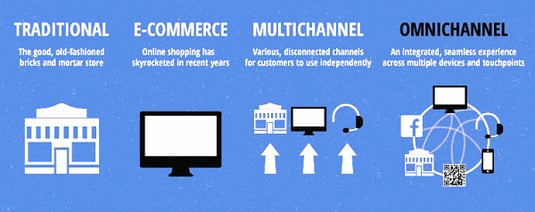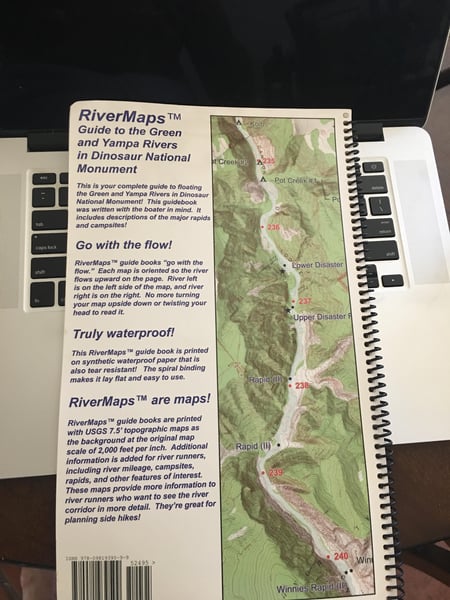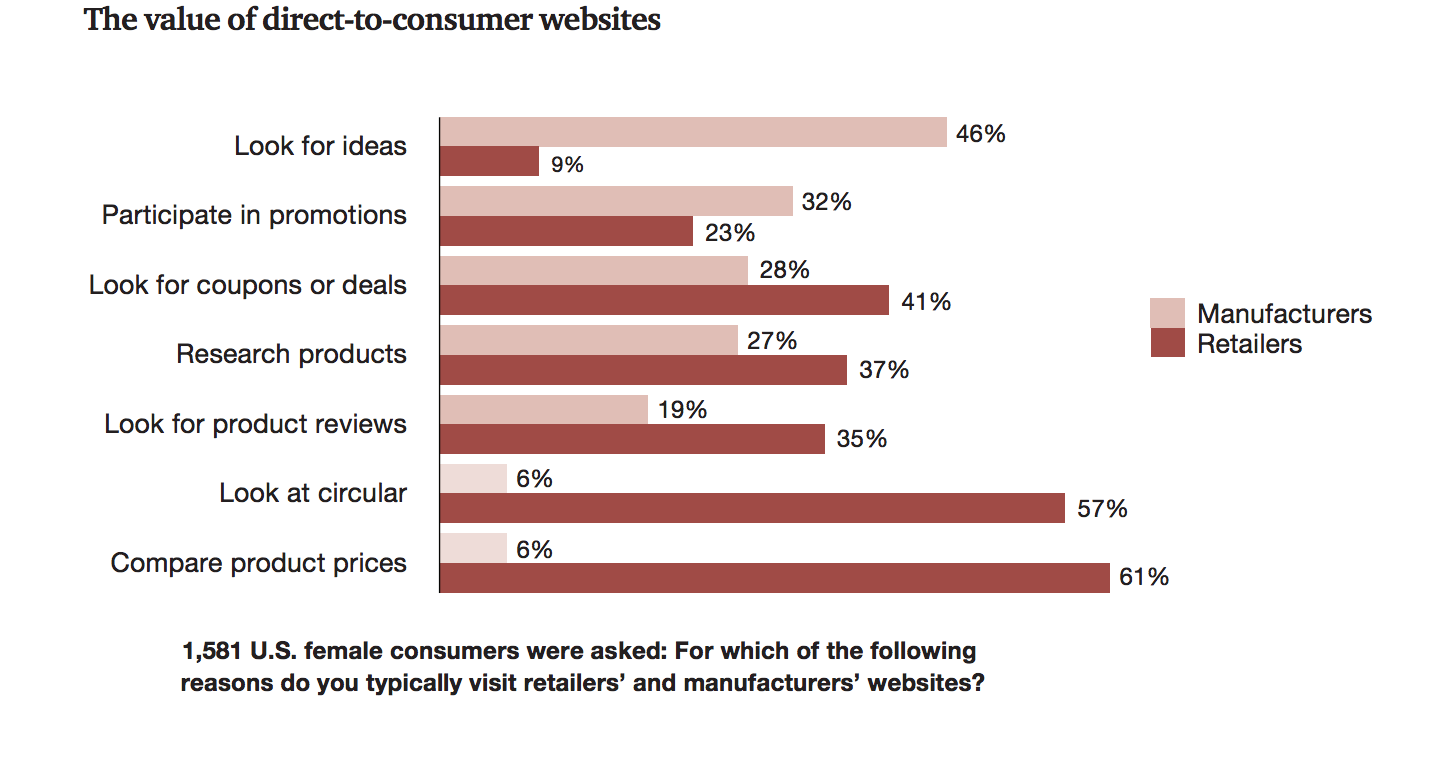
When I take a raft trip with a guided service, I am relying on them to collect the data necessary to provide me with a safe and memorable trip. Their acquisition and control of that data ultimately control's my experience. As I have progressed to learning how to run my own oar boat with other like minded boaters in which case we have a trip leader, I can completely defer to them regarding the data needed to make decisions on how to navigate the river and my experience or I can take control by gathering my own data on the river and use it to directly influence my experience.
The success of outdoor & sporting goods retailers both online (Amazon) and in-store (Bass Pro Shops – at no risk of bankruptcy) shows that the industry itself is not in trouble. Consumers are embracing sport, fitness and the outdoors at a rapid rate. What has changed, instead, are consumer habits, and the successful retailers and outdoor brands are the ones that are changing with them. Even though Amazon is a growing beast in this segment, (Amazon alone claims nearly 5% of the market share of this outdoor and sporting goods market, well above the average among other product groups) does not mean your e-Commerce strategy should just be "let's sell on Amazon." It's shortsighted, especially if you consider that more than half (55 percent) of shoppers prefer to shop directly with brand manufacturers over retailers, according to Astound Commerce Insight’s “Global Brand Shopper Survey.”
Don't put all their eggs in one basket. You need to diversify your revenue streams to avoid relying on one entirely. Your own online e-Commerce site is just as critical as your Amazon sales. You want an online shopping experience designed to compete with the smoothness of Amazon, or any other online retailer. A slick design and refined organization and navigation, a customer service guarantee, free returns, and free 2-day shipping all add to the customer’s shopping experience.
In short order, your outdoor company has evolved from the traditional B2B sales channel to one that uses secondary and proprietary e-Commerce channel(s) to sell. This creates a multi channel environment that is now an interlinked omnichannel experience for your customers that you have to seamlessly execute.

This move to diversify your sales channel for your products from its historical reliance on B2B dealers is driven by your need for more product sales. One option many are considering is the utilization of a third party reseller. If you are considering utilizing a third party reseller for your products as a means to expand B2C sales, don't ever lose sight of how important it is that you develop your own branded B2C channel. Third party resellers like Amazon do not provide any data on who purchases your products.
Knowledge is power, and getting to know the wants and needs of your target audience is key to the success of your outdoor industry brands e-Commerce presence.
Whether you have an existing B2C e-commerce site or need to build one, it's never been easier to do so. You need a strategy and the tools to build out your omnichannel sales platform. It's not bricks and mortar or digital; it's both working together to create sales and customer data you control.
The biggest challenge for an outdoor brands in the B2C space is to not just win a first time customer but to turn that person into a loyal customer and brand evangelist. As confirmed in a Harvard Business Review, “If you don’t have a means to collect and communicate with them directly, you cannot create and nurture a relationship”.
The bottom line is that businesses can only exist upon repeat business. You cannot create repeat business on Amazon and eBay because all of their branding is designed to reinforce their sales channel and not your brand. Ajay Bhalla, a professor at Cass business school in London, says selling on Amazon can be “a race to the bottom unless you have a very unique product”. He views many Amazon sellers as the heirs to flea-market traders, who would struggle to create a bricks-and-mortar business.
A question for outdoor brand's who have primarily sold their products through B2B and want to create a strong B2C channel is whether to sell their products through a 3rd party channel like Amazon and eBay instead of creating their own B2C channel.

Although selling through a channel like this can create quick short-term product sales to consumers, there are several insights to consider why this is not best for long-term brand building and product pricing. They are:
- You lose repeat business. Brands that sell via 3rd party vendors experience 75% less repeat business from those customers due to loss of collecting direct customer data from which to nurture building a brand relationship and community with them.
- You lose control of building a direct brand relationship with your customers.
- You lose control of tracking where visitors to your branded website land, where they exit, how long they stay, etc. This is critical in helping you figure out how to best help them make a product decision and purchase on your site.
- You lose the ability to tailor abandon cart re-engagement that is critical in closing a sale (even though 74% of all shopping carts are abandoned, 63% of abandoned shopping cart merchandise is recoverable).
- You lose the ability to discover preferences that allow you to create highly personalized offers and customer experiences.
- You lose the ability to find out what is trending among your entire customer base so that related offers can be promoted or a new feature/product can be introduced.
- You lose finding out what customers like and dislike most so you can enhance their experience next time they visit.
- You lose the ability to do exit surveys triggered by when the visitor moves their mouse to close the page.
- You lose setting up your own website B2C e-Commerce platform that allows you to maximize real time product offers and price flexibility, tell your product and company story, build community and build SEO authority in the search world. Branded domains enjoy high search rankings and reap a lot of traffic.
- You lose the ability to create your own account and login allowing visitors to use their social providers (FB, Twitter,etc.) which allows you to collect tons of valuable bits of data on them. Marketers need to understand the value of their customers’ life events, and what life events are relevant for your business and products. For true marketing effectiveness, companies have to mine their own customer data for insight and then combine this with information and intelligence from third-party providers. Internally held, first-party details such as email addresses and purchase histories can get you so far, but third-party data (FB, Twitter) – all subject to obtaining the relevant permissions – form a much more powerful version of this by providing the why, when and how elements.
- You lose the ability for one of your greatest sources of new product ideation: customer feedback through surveys, customer reviews, customer contests, etc. Customers are now becoming an increasing source of innovation, product improvements, and new product development.

Source: SheSpeaks
Judith Blackford, the founder of online toy retailer Kiddymania, agrees that sellers face fierce competition. “You have Amazon Prime [unlimited ‘free’ one-day-delivery for an annual fee]; you have Amazon One Click [instant ordering]. You can’t compete with all of that. There can be half a dozen [sellers] and everybody is trying to get into the buy box. What is to prevent Amazon from creating its own lower priced knock off to a product that sells well on its site?”
The importance of developing your own customer data is reinforced in a recent article in The Economist, The world’s most valuable resource is no longer oil, but data, it was noted:
"This abundance of data changes the nature of competition. Technology giants have always benefited from network effects: the more users Facebook signs up, the more attractive signing up becomes for others. With data, there are extra network effects. By collecting more data, a firm has more scope to improve its products, which attracts more users, generating, even more, data, and so on."
"Smartphones and the internet have made data abundant, ubiquitous and far more valuable."
"Meanwhile, artificial-intelligence (AI) techniques such as machine learning extract more value from data. Algorithms can predict when a customer is ready to buy."
Now consider on a smaller scale, the acquisition two years ago of the MTB Project by REI. Take the paragraph below from The Economist article and substitute.
The more data Tesla (REI) gathers from its self-driving cars (MTB Project users), the better it can make them at driving themselves (producing and selling products for Mountain Bike users).
This isn't a massively difficult set of concepts to master. It just takes a team capable of helping you identify and engineer a system that meets your needs and goals. Once the system is set up you can craft a strategy to increase sales across all channels and use customer data to build brand ambassadors, create new cross selling opportunities, develop new products and so much more. Customer data you create and control is a key foundation for your company's future success. It can seem overwhelming and scary, but you just need to embrace the opportunity a robust B2C channel will provide your company.

